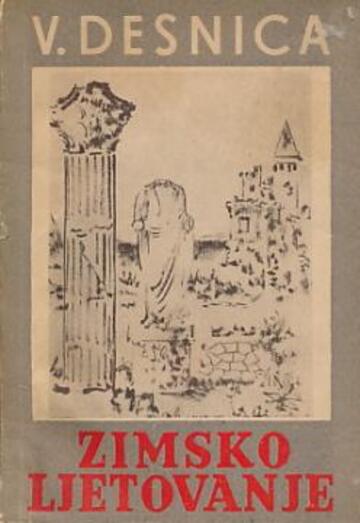
Zimsko ljetovanje
The Winter Summer Vacation
Wars
Racism
Balkanism
Class Hegemony
Second World War
Yugoslavia
Article in the conference collection What is the Political Novel? Defining the Genre, published in June 2025 at Open Research Europe.
Although Vladan Desnica’s novel Zimsko ljetovanje (The Winter Summer Vacation, 1950) has been criticised for being apolitical due to its emphatically realistic depiction and explicit avoidance of the expected themes of the Second World War, it is a prominent example of a political novel. On several narrative levels, the author draws attention to the expectations of the genre’s conventions and reshapes them in an imaginative and politically subversive way. By consistently drawing on officially proclaimed realist procedures and traditional narrative style, Desnica exposes the problematic nature of the ‘pragmatic’ use of literature and reveals hidden social controversies. He makes his ‘civilised’ characters into representatives of a Western colonial discourse and a racist vocabulary, turning them into a synecdoche of hegemonic relations and the production of inequality. Their attitude towards the socially and culturally disadvantaged peasants turns out to be a form of subjugation and production of hegemonic relations that correspond to those in a proclaimed egalitarian contemporary society. Although there was no racial question in Yugoslavia of the time, Desnica uses the colonial and racist discourse of his literary characters as an explicit form of hegemonic politics, referring with them both to imperialist Italy and to the contemporary egalitarian Yugoslav state. With his novel, Desnica evokes emancipatory interventions that work beyond the loose framework of the Morlach population. He steers his narrative towards a fundamental humanist framework in the sense of modernist interest in the representation of subjectivity and the mechanisms of community functioning.

Wars
Racism
Balkanism
Class Hegemony
Second World War
Yugoslavia
Politics of literature • Political novel
This Collection brings together selected contributions to the first annual CAPONEU conference, which took place in Berlin from 27 to 29 September 2023. The participants discussed a variety of understandings of the political novel as a (tentative) genre. They combined approaches to defining the political novel that are characterised by genre theory with those that are shaped by the history of the genre, thus also paradigmatically illustrating this changeable category in relation to specific novels that have emerged in heterogeneous contexts. The Collection was published on the Open Research Europe platform (open access).
Scholars
Students
Writers, translators, publishers, literary critics